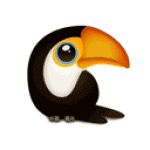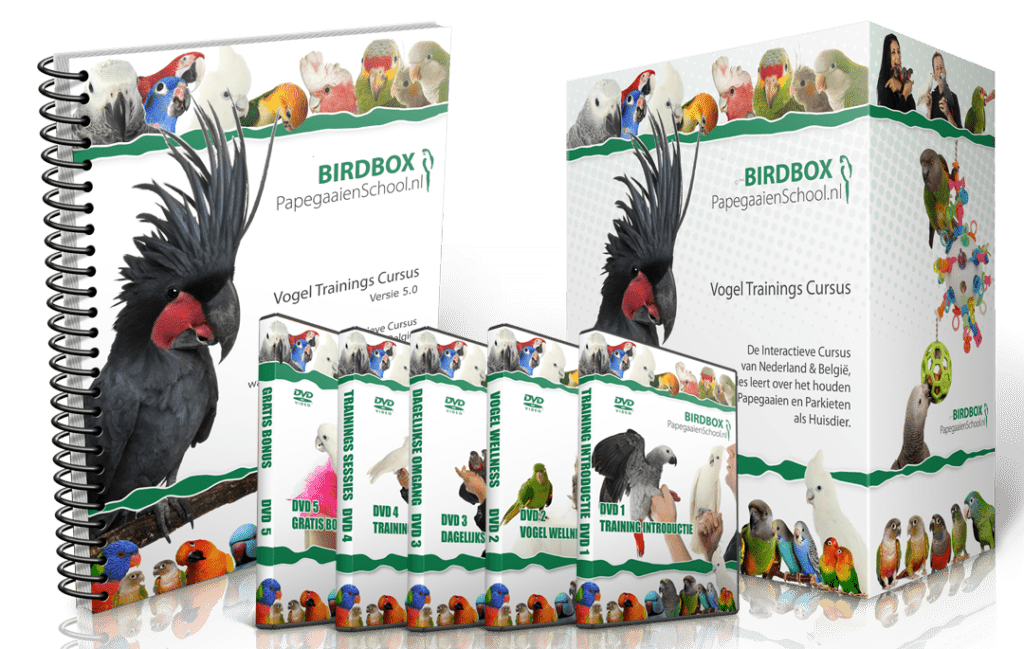If you’re a proud owner of a cockatiel, you know that it can be a challenge to keep up with their dietary needs. These small birds require a balanced and varied diet to stay healthy and happy.
As a responsible bird parent, you may be wondering if grapes are a safe and appropriate food for your feathered friend. The answer is not as straightforward as you might think. While grapes can offer some nutritional benefits, they also come with potential risks.
In this article, we’ll take a closer look at the question of whether cockatiels can eat grapes. We’ll discuss the pros and cons of including grapes in your bird’s diet, and offer some tips for feeding them safely. So let’s dive in and find out if grapes are a good choice for your cockatiel!
Can Cockatiels Eat Grapes?
Can cockatiels eat grapes? This article will provide insight. Grapes are not toxic, but should be fed in moderation. A few seedless grapes make a tasty treat now and then. Cooked and processed grape products should be avoided, as they may contain preservatives and too much sugar. Grapes contain oxalate acid, which may reduce calcium absorption. Too much can cause weak bones and health issues. Fruits like papaya, mangoes, and blueberries are better for cockatiels than grapes. If you plan to introduce grapes, consult with your vet first.
Cockatiels have special dietary needs. Grapes may not be bad, but may not be the best. Each bird processes food differently. My pet cockatiel was losing feathers until I changed his diet to include fruits, vegetables, and less seeds. When I did, he regained all his feathers in months! Grapes are not just for humans – cockatiels can enjoy them too!
Nutritional Value of Grapes for Cockatiels
Inquiry about The Suitability of Grapes in Cockatiels’ Diet.
Grapes are one of the most common fruits consumed by humans, and they’re also popular as bird food. But, are they safe and nutritious for cockatiels? The answer is YES. Grapes are a nutritious source of vitamins and minerals that a pet bird’s body requires to function properly.
Nutritional Value of Grapes for Cockatiels
To put it simply, grapes are a healthy food for cockatiels. They’re a good source of vitamins C and K, potassium, copper, and several other beneficial nutrients that your feathered friend needs for overall health and well-being. Additionally, grapes have a high water content, which keeps your pet hydrated. Here’s a table summarizing the nutritional value of grapes for your cockatiel:
| Nutrient | Quantity per 100 grams |
|---|---|
| Vitamin C | 3.2 mg |
| Vitamin K | 14.6 mcg |
| Potassium | 191 mg |
| Copper | 0.07 mg |
| Water | 81% |
Unique Details about Grapes as Bird Food
Grapes’ skin, which holds the majority of the fruit’s nutrient-dense compounds, can be included in your bird’s diet. However, removing the seeds and cutting the grapes into smaller portions is a healthier option. The reason being that grape seeds include tannin, which may harm your bird’s digestive system.
A True Fact about Grapes as Bird Food
In comparison to other fruits, grapes are incredibly safe for your cockatiel. In fact, according to bird experts, grapes are among the top five fruits that pet birds enjoy eating.
Source: The Spruce Pets.
Grapes might not be good for your pet rock, but for cockatiels, they’re a fountain of youth…or at least a source of vitamins and minerals.
Vitamins and Minerals in Grapes
Grapes are packed with vitally-important vitamins and minerals that can benefit cockatiels. These nutritious fruits offer the nourishment needed to keep your pet bird healthy.
Vitamin C is essential for a strong immune system – and grapes have it! Vitamin K helps with blood clotting and bone health, while Potassium supports cardiovascular health by regulating blood pressure levels. Plus, Iron and Calcium aid in muscle and bone development.
However, grapes should not be the only thing cockatiels eat. A varied diet consisting of fruits, vegetables, and proteins is necessary for daily feeding.
Research shows that grapes have natural antioxidants which protect against certain diseases, and promote longevity among cockatiels.
So, your bird will have plenty of fiber from grapes – and a good long life.
Fiber Content in Grapes
Grapes are a great snack for cockatiels! They have fiber, which helps regulate digestion and maintain gut health. Here’s a quick table of fiber content in different types of grapes:
| Grape Variety | Fiber per 100g |
|---|---|
| Red Seedless Grapes | 0.9g |
| Green Seedless Grapes | 0.7g |
| Black Seedless Grapes | 1g |
Grapes also contain Vitamin C and antioxidants. But remember, they should only be a treat. Take out any seeds first, as they could be a choking hazard. And if your cockatiel starts singing ‘I will survive’, it’s probably just a coincidence!
Safety Precautions for Feeding Grapes to Cockatiels
Incorporating Grapes in Cockatiels Diet: Safety Guidelines
When considering incorporating grapes in your cockatiel’s diet, as a pet owner, it is essential to be aware of the potential safety hazards and adhering to some best practices to ensure your bird’s well-being.
- Avoid feeding grapes in excess to cockatiels due to their high sugar content, which may lead to obesity and health issues.
- Always clean and wash the grapes before offering them to your bird to eliminate any pesticide residue, dirt, or bacteria that may be harmful to their health.
- Carefully monitor and observe your bird for any allergic or adverse reactions to grapes, such as diarrhea, vomiting, or lethargy, indicating that the fruit does not suit your bird’s digestive system.
It is worth noting that not all birds enjoy grapes, and you may have to introduce them gradually to your cockatiel’s diet. Also, incorporating fruits and vegetables in a balanced diet, alongside nutritional food, is vital to your bird’s overall health.
Grapes are a tasty, valuable addition to your cockatiel’s diet; however, one must be cautious when feeding them. Doing so ensures the good health and happiness of your bird.
In the past, there have been recorded instances where grapes have caused digestive problems and led to fatal outcomes in birds; therefore, using caution and making sure your pet responds well is essential. Grapes may be a sweet treat for humans, but for cockatiels, they’re just another potential choking hazard.
Potential Choking Hazard
Cockatiels are at risk of choking on food, especially grapes. Therefore, it is important to peel them and cut them into small pieces. No stems, leaves or seeds should be included. To be extra safe, consider removing the seeds and cutting them into even smaller pieces. Supervise your bird while it eats to prevent any choking incidents. Feeding grape seeds is like playing Russian Roulette with a side of cyanide – avoid doing this at all costs!
Grape Seeds and Toxic Compounds
Grape seeds are a big no-no when it comes to feeding grapes to cockatiels. They contain toxic compounds, such as tannins and oxalates, which can be very dangerous. As a responsible pet owner, you must be aware of the risks!
To keep your feathered friend safe, you must remove all grape seeds before giving them to your cockatiel. This can be done by cutting the fruit into small pieces, or using seedless grapes. You can even manually remove the seeds using tweezers.
It’s important to remember that grapes also contain high levels of sugar, so moderation is key. When introducing a new food to your cockatiel’s diet, start with small amounts and monitor their reaction. If there are any signs of discomfort, speak to your vet.
Castro, a Cockatoo, is a prime example of why it’s important to be careful. He passed away within hours after eating just two small grapes with their seeds. So, if you own a pet bird like Hector, you must do your research and make sure they don’t become a grape-eating machine!

How to Feed Grapes to Cockatiels
Cockatiels are known for their unique tastes, and grapes are a fruit that they can certainly enjoy. To ensure that your feathered friend can safely consume this delicious fruit, it is important to follow specific feeding methods.
- Clean and Cut: Thoroughly wash the grapes and remove any stems or seeds before serving.
- Offer in Moderation: Like all fruits, grapes contain sugar and should be offered in moderation.
- Cut into Small Pieces: To reduce the risk of choking, cut the grapes into small, manageable pieces.
- Avoid overfeeding: While grapes are a safe and healthy snack for cockatiels, overfeeding can lead to issues or upset stomachs.
- Serve Fresh: Always offer fresh grapes and remove any uneaten portions promptly.
It is important to keep in mind that while grapes are a safe fruit for cockatiels, it is still crucial to maintain a balanced diet that includes a variety of fruits and vegetables. Additionally, avoid offering grapes with seeds or stems as they can cause choking hazards.
Overall, grapes can be a tasty and healthy addition to your bird’s diet when prepared correctly and offered in moderation. By following these simple steps, you can keep your cockatiel happy and healthy!
Get those grapes ripe and ready, because your cockatiel is about to have a fruity feast!
Preparing Grapes for Feeding
For safe and healthy grapes for your cockatiel, there are a few steps to follow. Here’s how:
- Rinse the grapes with fresh water to remove any dirt or other substances.
- Cut the grapes into small pieces that fit your cockatiel’s beak size. Don’t feed them whole as it can be a choking hazard.
- Take out the seeds as they contain toxic substances which can be harmful.
- Put the prepared grapes in your cockatiel’s dish and let them enjoy this nutritious snack!
Keep in mind, too much of a good thing can be a bad thing. Don’t overfeed your bird with grapes, as it could lead to weight gain or other health issues.
Not all birds love fruit; some prefer seeds or pellets. Observe your cockatiel’s reactions and food preferences before offering them a treat.
Did you know that wild cockatiels in Australia feed on grapevines? When feeding your cockatiel, think of Goldilocks – not too much, not too little, but just the right portion size.
Ideal Portion Size for Cockatiels
Optimal Serving Size for Cockatiels
When it comes to Cockatiel food, we must be mindful of portion size. Research shows that Cockatiels need 1-2 teaspoons of feed daily. This could include pellets or seeds combined with fruits and veggies like grapes, carrots, or broccoli. Never forget fresh water and minerals and vitamins in their diet. Remember, too much food can lead to obesity in pet birds. So, it is essential to provide them with precisely what they need for physical well-being.
Besides serving sizes, it’s important to know benefits and drawbacks of certain fruits as part of your bird’s diet. For instance, grapes contain Vitamin C, A & B6 but should not be given too often due to their sugar content.
Historically, there is evidence that feeding behavior may affect birds’ life expectancy and susceptibility to illness. Thus, it is vital to provide your feathery friend with adequate nutrition according to their dietary requirements.
If your Cockatiel isn’t a fan of certain fruits, try giving them apples and pears – variety is the spice of bird life!
Alternative Fruits for Cockatiels
In the world of avian pets, it is crucial to provide the right kind of nutrition to your feathered friends. Cockatiels, being one of the most popular avian pets, require a balanced diet that is not limited to seeds and pellets. Feeding fruits to your cockatiel is an excellent way to incorporate essential vitamins and minerals into their diet.
Here are three alternative fruits for cockatiels that you can feed them, other than grapes:
- Apples: Apples are an excellent source of fiber and vitamins A and C, making them a healthy and nutritious snack for your cockatiel. Make sure to remove the seeds and core before feeding them to your pet.
- Bananas: Bananas are a good source of potassium and Vitamin B6. Feed small pieces of ripe banana occasionally to your bird as a treat.
- Papayas: Papayas are a rich source of antioxidants and Vitamin C and can help keep your cockatiel’s immune system healthy. They also contain papain, which aids in digestion and is beneficial for birds who eat a lot of seeds. Cut fresh papayas into small pieces and offer them to your bird as a treat.
Cockatiels have specific dietary needs, and it is crucial to choose fruits that are not only safe for their consumption but also provide essential nutrients that promote their overall health. Remember that excessive feeding of fruits as treats can disrupt their balanced diet.
Feeding your cockatiel with a diverse range of fruits can help prevent boredom and keep them engaged. However, before introducing any new fruit, research its nutritional value and potential side effects to ensure that it is safe for your bird.
Incorporating alternative fruits into your cockatiel’s diet is an excellent way to keep them healthy and happy. Always remember to wash the fruits thoroughly, and never offer your bird any fruit that is rotten or moldy.
Keep your feathered friend feeling fabulous by sticking to safe fruits, because nothing ruins a good squawk like a tummy ache.
Fruits Safe for Cockatiels
Cockatiels are delightful birds who love their fruit! It’s important for bird owners to know which fruits are safe for their feathered pals. Here’s a list of six safe and tasty options:
- Apples – remove the seeds and core before slicing.
- Bananas – peel and cut into small pieces.
- Blueberries – offer occasionally as they’re high in sugar.
- Grapes – slice in half before feeding.
- Mangoes – remove skin and pit, then slice.
- Papayas – offer seed-free and cut into small pieces.
Alternative fruits include kiwis, persimmons, figs, cherries (no pits) and pomegranates (seeds removed). But remember to introduce new fruits gradually, and always wash produce before giving it to your bird. Looks like grapes might not be the apple of the cockatiel’s eye after all!
Nutritional Comparison Between Grapes and Other Fruits
When it comes to selecting fruits for your beloved cockatiel, there are many options. We will focus on comparing the nutritional values of grapes with other fruits. The advanced table below shows the comparison. Grapes have vitamin C and antioxidants. But blueberries and pomegranates have higher levels of these nutrients, plus vitamin K, fiber and iron.
It’s important to note that many fruits have oxalates. These can cause health concerns like kidney stones or hyperoxaluria in birds. So, it’s best to check with your vet which fruits are suitable.
We found an interesting story about a cockatiel called Peaches. She developed an aversion for grapes after eating them daily during her upbringing. Variety is key when creating meal plans for pets. By providing different fruit options with critical nutrients, you can keep your bird’s nutrition levels up and prevent boredom. There are several alternatives to grapes that cockatiels might enjoy while still getting nutrients. Safety is essential, but let’s experiment with our feathered friends’ taste buds!
| Fruit | Vitamin C | Vitamin K | Fiber | Iron |
|---|---|---|---|---|
| Grapes | Low | None | Low | Low |
| Blueberries | High | High | High | Low |
| Pomegranates | High | High | High | Low |
Conclusion: Can Cockatiels Safely Eat Grapes?
Cockatiels can eat grapes! Grapes are a great source of vitamins and minerals. However, they must be served in moderation. Seeds and skin should be removed, and grapes should never be moldy or stale. Other human foods, like chocolate or avocado, can be harmful.
A friend shared her experience with her cockatiel. She fed him grapes regularly in small portions. He loved them so much he would get vocal when she entered the room where the grapes were stored. He lived a happy life filled with grapes as a safe, enriching treat!
Frequently Asked Questions
Can cockatiels eat grapes?
Yes, cockatiels can safely eat grapes in moderation as a part of their balanced diet.
Are grapes toxic to cockatiels?
No, grapes are not toxic to cockatiels. However, feeding them in excess can cause digestive problems, so it’s better to limit the amount of grapes they consume.
Can I feed my cockatiel both red and green grapes?
Yes, both red and green grapes are suitable for your cockatiel to eat. However, green grapes are a healthier option as they contain fewer sugars than red grapes.
Can I feed my cockatiel grape seeds?
No, grape seeds are not safe for birds to eat as they contain a low level of cyanide, which can be harmful to your cockatiel. It’s always better to remove the seeds before feeding your bird.
Should I feed my cockatiel only grapes?
No, feeding only grapes to your cockatiel is not recommended. Your bird’s diet should include a variety of fruits, vegetables, and pellets to provide them with the nutrients they require.
How often should I feed grapes to my cockatiel?
You can feed grapes to your cockatiel as an occasional treat, but not on a daily basis. It’s recommended to feed grape slices only 2-3 times a week to prevent overfeeding and obesity.


